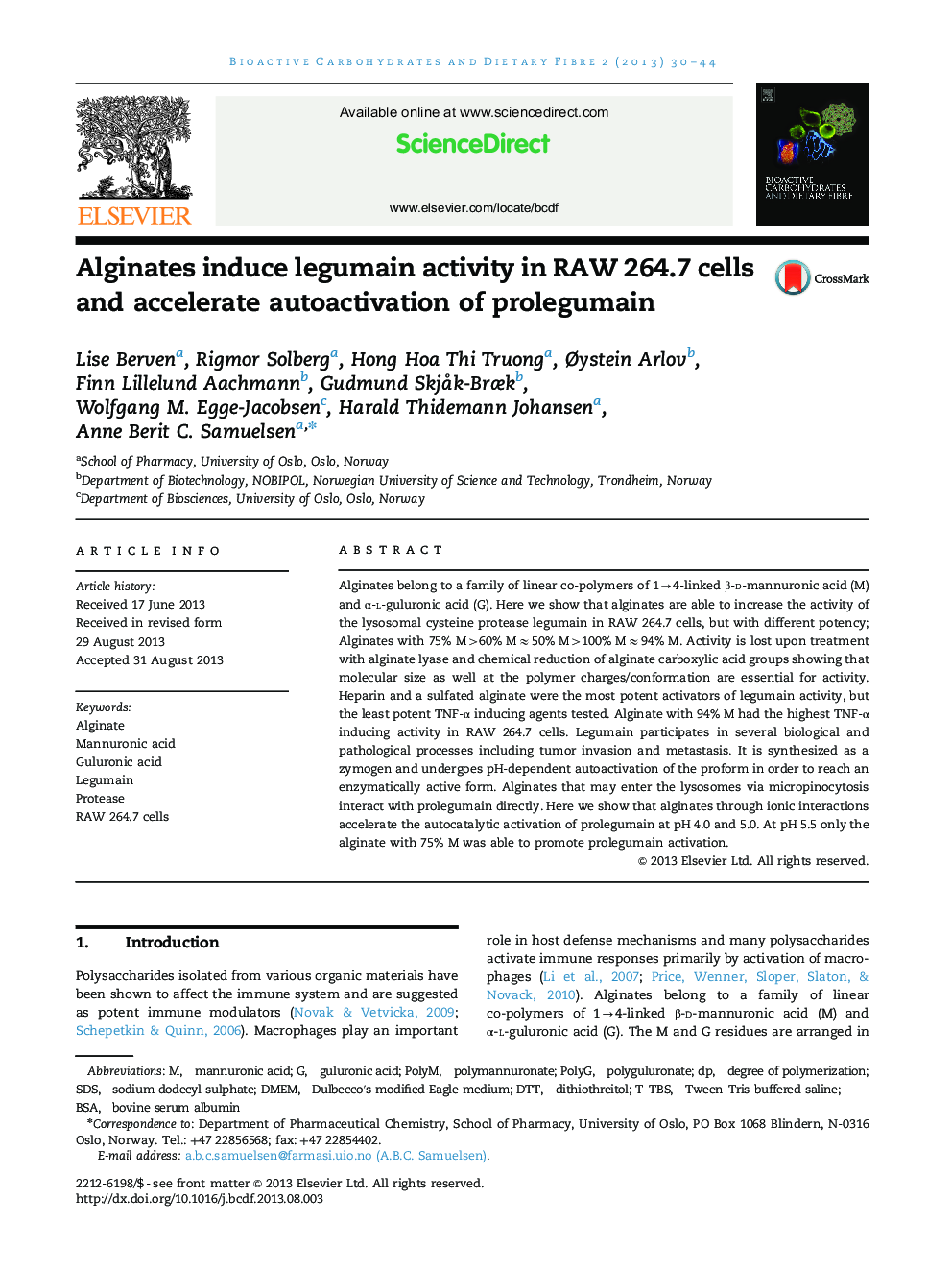| Article ID | Journal | Published Year | Pages | File Type |
|---|---|---|---|---|
| 1413048 | Bioactive Carbohydrates and Dietary Fibre | 2013 | 15 Pages |
Abstract
Alginates belong to a family of linear co-polymers of 1â4-linked β-d-mannuronic acid (M) and α-l-guluronic acid (G). Here we show that alginates are able to increase the activity of the lysosomal cysteine protease legumain in RAW 264.7 cells, but with different potency; Alginates with 75% M>60% Mâ50% M>100% Mâ94% M. Activity is lost upon treatment with alginate lyase and chemical reduction of alginate carboxylic acid groups showing that molecular size as well at the polymer charges/conformation are essential for activity. Heparin and a sulfated alginate were the most potent activators of legumain activity, but the least potent TNF-α inducing agents tested. Alginate with 94% M had the highest TNF-α inducing activity in RAW 264.7 cells. Legumain participates in several biological and pathological processes including tumor invasion and metastasis. It is synthesized as a zymogen and undergoes pH-dependent autoactivation of the proform in order to reach an enzymatically active form. Alginates that may enter the lysosomes via micropinocytosis interact with prolegumain directly. Here we show that alginates through ionic interactions accelerate the autocatalytic activation of prolegumain at pH 4.0 and 5.0. At pH 5.5 only the alginate with 75% M was able to promote prolegumain activation.
Keywords
Related Topics
Physical Sciences and Engineering
Materials Science
Biomaterials
Authors
Lise Berven, Rigmor Solberg, Hong Hoa Thi Truong, Ãystein Arlov, Finn Lillelund Aachmann, Gudmund SkjÃ¥k-Bræk, Wolfgang M. Egge-Jacobsen, Harald Thidemann Johansen, Anne Berit C. Samuelsen,
